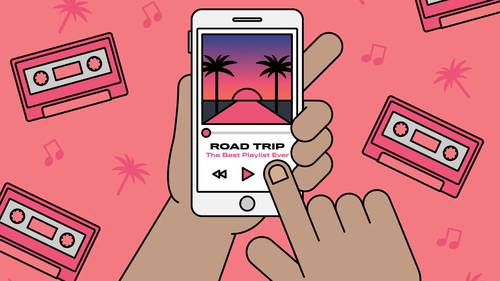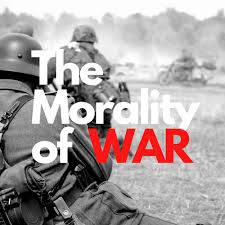To say that the internet rules all our lives today must be a grave understatement. From the footwear you buy to the subject you want to major in, to your political ideologies, the internet decides it all. You wake up, can’t get out of bed without scrolling for at least 15 minutes, and open up your social media app—surprise! There’s a new trend. Try these Blueberry milkshake nails; they're new and annoyingly cute! Tired of carrying stuff around in your hands? Here’s a new tech-neck bag for you. Are you a skater-boy or an emo girl? Here’s a shoe that will go with both your styles. A manipulative female character with her body and her loudness as her only personality traits? "Yass, OMG, what a queen! #GaslightGatekeepGirlboss." A narcissistic man talking about the number of Bugattis he owns and how he’s so smart for human trafficking? "Real men must be committed to the Grindset like him. Swallow the Red pill. #HustleCulture #DestroyFeminism."
The extent to which the Internet has seeped into the most diminutive parts of our brains and rewired our thoughts is extremely frightening and not something to be overlooked at all. So, being the most intellectually capable species on planet Earth that dealt with several issues of a larger scale than this one and emerged unscathed, it is non-negotiable to question this and analyze the systemic and structural practices that leech off this global phenomenon. Or, I’m guessing so; who am I to tell? I’m just the product of the internet. Anyway, let’s tackle the big fish: What has capitalism got to do with all this? What are all the claims with “Internet Activism”? We’ll get into detail about that in this article by stating that when I say Capitalism, I mean the hyper-consumerist practices that are being pushed toward the consensus by extremely corporate, bureaucratic capitalists and not the entire economic system.
If you’re someone who has lurked on the internet for a considerable amount of time, then you’ll know what I say when I talk about things like “Wokeism” and “Red-pill.” If you’re unacquainted with those terms, blessed be thy souls, you will be by the end of this article. “Woke” is a word that initially originated in AAVE (African American Vernacular English) in the 1930s, meaning the state of being conscious of prevailing racial injustice. By the 2010s, the word became an umbrella term encompassing an awareness of many social injustices such as sexism, LGBTQA+ rights, harmful environmental practices, etc. Popularized during the BLM protests and widespread during the quarantine, the word became something of an internet subculture, herding many people and inspiring them to be a devotee of a meaningful cause. The massive rise in popularity of this word not only amassed followers but also instigated the opposers, resulting in the red-pill community. The whole brand of it was centered on the belief of it being some sort of an anti-woke revolution. This was also soon to be internet popularized as well, and these self-proclaimed “alpha males” lured in a lot of young, especially male audience, who seemed to be at their lowest point of life, dealing with insecurities and feeling a sense of aimlessness, and profited off of them. These promises came cleverly wrapped in the disguise of “self-improvement” and embellished with a good deal of misogyny and internalized homophobia. The entirety of internet users seem to align their ideologies and derive opinions primarily from one of these two conflicting sides of it and then base their entire personality around it. All our ethics and ideals seem to be derived from the Internet, which is theoretically a good thing because the Internet is the storehouse of all knowledge, but unfortunately, it also houses a lot of extremists, and everything is easily accessible. It is just as easy to rally people to strive for the extinction of world hunger as it is to form a heinous cult.
And this is where the issue with Capitalism and Consumerism ties in. The interplay between Capitalism, Influencing, and internet activism is a complex, intricate web of forces that shapes not only our online interactions but also carries itself onto the real world, creating meaning and impact. Gaining an understanding of this crucial relationship allows us to perceive where the boundaries blur from genuine advocacy to performative marketing tactics. Internet activism, whether aligned with 'Wokeism' or the 'Red-pill' ethos, operates within the framework of capitalism, raising questions about how genuine change can coexist with a consumer-driven culture. This can be seen in the way most corporate companies jump on the bandwagon of inclusivity through commercialized merchandise from t-shirts with feminist slogans to pride flags. The entertainment industry also tries to profit off the social awareness movement by pushing certain agendas too far, as evident in the recent Disney’s Peter Pan. Likewise, the red-pill movement also tries to earn its way through the insecurities of young men with several inauthentic people coming out with packages and courses like the “The Hustlers’ University” glorifying the materialistic, extravagant lifestyle owning several race-cars, yachts, “ice,” etc.
Speaking of the Internet and consumerism, we possibly can’t ignore the mothership of it all: The Influencer Hub. There are so many issues that could be touched on which this avenue opens up. I’ll restrain myself to the biggest plague of them all: the effect on mental health. A study proved that an average internet user sees from 6,000 to 10,000 ads per day (Forbes, 2022), and another survey shows that impulsive shopping has hitched up to a 68% increase after 2022 (Pacific Business Review International). Why is that? That’s easy: Influencer culture. With stealthily placed adverts and one-click purchases, instant gratification just got a whole lot more instant. People started to tie their self-worth and values with their material possessions more and more, all because of influencers. I’m not just talking about the good ol’ sponsored advertisements on Instagram or TikTok, but the more hidden, stealthy brand promotions that sell not just mere products but rather a “lifestyle.” Yes, I’m talking about aesthetics and micro-trends. Buzzfeed says you’re a cottage-core girl, so you’re in dire need of that white skirt from Shein. It’s just one thing; it will make you so happy! But it won’t. It’s a never-ending, unjustly glorified cycle of “I see it. I like it. I want it. I bought it.” As more time passes, it gets more difficult for users, especially teenagers, to find their self-worth separately, without tying it to material possessions or the fame associated.
So how to break free of this system that exploits you? Well, if you read this far, then I’d say that you’re someone who’s intrigued by this and wants to learn more about how to free yourself from the hysteria. Learning and self-awareness are your only allies. Freedom comes from maturing, and maturing comes with acknowledgment. Recognize that your self-worth isn’t determined by material possessions or online trends.
Embrace real-world connections, and hobbies and embark on a mental journey of self-discovery *without the help of the internet*. Oh, and don’t forget to stop scrolling!





